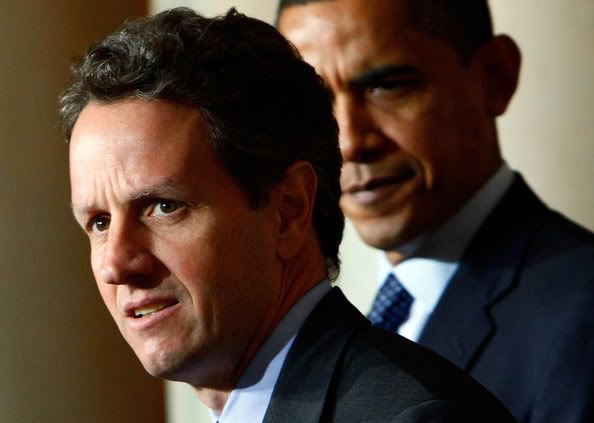Author's posts
Jan 09 2010
Afghanistan and Global Dominance
Rather than post an intro that would nothing more than a repetitive summary, I’ll leave it to you to listen to how the MIC and the empire will end…
The end of an epoch in 2008-2009, and the beginnings of a new one in 2010:
Real News Network – January 7, 2010
Afghanistan and global dominance Pt2
F. William Engdahl: New regional cooperation that challenges US dominance is good for the world
Part one of this is here: Afghanist- yemen- omalia- bama, & Good Intelligence
Jan 05 2010
What If The President Was Black?
The Real News Network’s Paul Jay talks with Glen Ford, Executive Editor of Black Agenda Report, “The Journal of African American Political Thought and Action”, who evaluates the first year of Barack Obama’s presidency, and observes, for a variety of good reasons, that the first US black president “takes every opportunity available to spit in the faces of black people, and to do this quite ostentatiously, very dramatically…”
Real News Network – January 5, 2010
Obama and great expectations
Glen Ford: Critical elements of black progressive leadership are distancing themselves from Pres. Obama
Jan 04 2010
Afghanist- yemen- omalia- bama, & Good Intelligence
 Al-Qaeda shifts into dangerous new territory
Al-Qaeda shifts into dangerous new territory
UK Telegraph, January 04, 2009
The key to success against the jihadists will always be good intelligence.
President Barack Obama’s statement on Saturday linking the failed airline bomb attack over Detroit on Christmas Day to an al-Qaeda group based in Yemen will have surprised no one. It confirmed, if confirmation were needed, that the coming decade will be as dominated as the last by the threat posed to the West by Islamist terrorism. The focus of the battle is, however, shifting. Significant successes by the United States and its allies in both Afghanistan and Pakistan have forced al-Qaeda largely to re-locate to Yemen and Somalia.
It’s a goddamn good thing he’s keeping you “safe” by upping the number of troops in AfPak to 100,000 or more and shooting handcuffed children, right?
Real News Network – January 4, 2010
Afghanistan and global dominance
Engdahl: US China strategy driving Afghan war, but no real long range thinking in place
Jan 04 2010
IRAN: Dealing With Government Oppression
 What to do when the government shoots at you?
What to do when the government shoots at you?
by Diana Sweet, RawStory, January 02, 2010
An amateur video apparently taken with a cell phone has surfaced on YouTube that appears to contradict the Iranian government’s claim that its security forces didn’t shoot at protesters last Sunday during demonstrations that left at least eight people dead, including the nephew of opposition leader Mir-Hossein Mousavi.
As first reported by The Los Angeles Times on Saturday, the video not only shows a gunman opening fire on demonstrators – it also gives an eye-opening look at a growing air of defiance by Iranian opposition.
A man in plain clothes is seen and heard opening fire on the crowd as another man can be heard shouting out “Dishonorable Basiji!” blaming a member of Iran’s Basij militia for firing the shots.
With shots fired, you would expect the demonstrators to flee and seek cover, but instead, they decide to fight back.
“Attack!” someone in the crowd calls out, and the crowd runs off in pursuit of the gunman as the video, less than a minute in length comes to an end.
Jan 03 2010
The Grim State of the States: Public Education Under Attack
Economist James Heintz is Associate Director of the Political Economy Research Institute at the University of Massachussetts, Amherst.
Heintz has written on a wide range of economic policy issues, including job creation, global labor standards, egalitarian macroeconomic strategies, and investment behavior. He has worked as an international consultant on projects in Ghana and South Africa, sponsored by the International Labor Organization and the United Nations Development Program, that focus on employment-oriented development policy.
In 2000 Heintz co-authored with The Center for Popular Economics and Nancy Folbre The Ultimate Field Guide to the U.S. Economy: A Compact and Irreverent Guide to Economic Life in America, and is also author of a variety of other books and papers on employment and economics over the past decade or so.
His current work focuses on global labor standards, employment income, and poverty; employment policies for low- and middle-income countries; and the links between macroeconomic policies and distributive outcomes.
Heintz is recently the author of a new research paper: “The Grim State of the States: The Fiscal Crisis Facing State and Local Governments.” (.PDF), which opens with:
The collateral damage of the global financial crisis is extensive-record job losses, falling incomes, and increasing uncertainty that paralyzes workers, consumers, and investors alike. State and local governments have joined the list of casualties. They are facing the worst budget crisis in decades and the situation will likely get worse before it gets better. If not enough is done, the fiscal crunch will have far-reaching implications for the severity of the crisis and the well-being of the American people.
A sample of the current budget situation from the 50 states shows that the fiscal crisis has spread nationwide.
At the time of this writing, Arizona is projecting a $1.6 billion shortfall at the state level for the 2009 fiscal year, and this is expected to expand to $3 billion for fiscal year 2010.1 Georgia State University has recently forecast that Georgia’s revenues will drop by 6 percent in fiscal year 2009, opening up a $2.5 billion gap. Minnesota must accommodate a $426 million deficit in the current fiscal year which is projected to grow to $4.8 billion in 2010-2011.3 New York is anticipating a $1.6 billion current-year shortfall and this is expected to climb to an unprecedented $13.8 billion gap in the 2009-2010 fiscal year.
The list of states facing severe financial problems goes on and on. According to the Center on Budget and Policy Priorities, a Washington, D.C.-based research institute, as of January 2009 at least 46 states have reported facing budget shortfalls for the current and/or the next fiscal year, totaling an estimated $99 billion.
These are just the initial estimates of the impact that the economic crisis will have on state revenues and budgets. The severity of the budget crisis ultimately depends on how long and how deep the downturn becomes and the degree of ongoing state support that the federal government ultimately provides over the next several years.
Depending on the trajectory of the crisis, the Center on Budget and Policy Priorities forecasts that the combined state-level budget shortfalls may add up to over $350 billion by 2011.
Here Heintz talks about that new paper with Paul Jay of The Real News in the first of a multi-part interview, and concludes from his research that 900,000 state workers, many in education, across the US could lose their jobs as state deficits explode:
Real News Network – January 3, 2010
The grim state of the states, Pt.1
James Heintz: 900,000 state workers across the US could lose jobs as state deficits explode
Jan 02 2010
Shooting Handcuffed Children
by David Swanson this morning…
The occupied government of Afghanistan and the United Nations have both concluded that U.S.-led troops recently dragged eight sleeping children out of their beds, handcuffed some of them, and shot them all dead. While this apparently constitutes an everyday act of kindness, far less intriguing than the vicious singeing of his pubic hairs by Captain Underpants, it is at least a variation on the ordinary American technique of murdering men, women, and children by the dozens with unmanned drones.
Also this week in Afghanistan, eight CIA assassins (see if you can find a more appropriate name for them) were murdered by a suicide bombing that one of them apparently executed against the other seven. The Taliban in Pakistan claims credit and describes the mass-murder as revenge for the CIA’s drone killings. And we thought unmanned drones were War Perfected because none of the right people would have to risk their lives. Oops. Perhaps Detroit-bound passengers risked theirs unwittingly.
The CIA has declared its intention to seek revenge for the suicide strike. Who knows what the assassination of sleeping students was revenge for. Perhaps the next lunatic to try blowing up something in the United States will be seeking revenge for whatever Obama does to avenge the victims (television viewers?) of the Crotch Crusader. Certainly there will be numerous more acts of violence driven by longings for revenge against the drone pilots and the shooters of students.
In a civilized world, the alternative to vengeance is justice. Often we can even set aside feelings of revenge as long as we are able to act so as to deter more crime. But at the same time that the puppet president of Afghanistan is demanding the arrest of the troops who shot the handcuffed children, the puppet government of Iraq is facing up to the refusal of the United States to seriously prosecute the Blackwater assassins of innocent Iraqis. Justice will not be permitted as an alternative to vengeance — the mere idea is anti-American.
Jan 02 2010
Crony Capitalism, Part 4
In Part 4 of his continuing series about the causes of and possible fixes for the ongoing economic and banking crisis with Paul Jay of The Real News, Dr. Robert Johnson, Director of Financial Reform for the Roosevelt Institute, and Executive Director of the Institute for New Economic Thinking (INET) discusses his ideas of the main principles for the kind of legislation needed to remedy the situation.
Johnson notes that without fundamental changes in the way the Obama Administration is dealing with, and a new regulatory framework governing, the actions of investment banks on Wall Street and the forms of financial instruments like derivatives that they can create and sell, that another very serious economic crash, almost certainly worse than what we’ve seen so far, is a virtually certainty to occur, probably sooner than later, and that firms that are “too big to fail” must be allowed to fail.
Real News Network – January 2, 2010
The crash can happen again
Robert Johnson: Nothing in current financial reform legislation will stop another crash
You can watch all four parts of this interview under the tag Robert Johnson.
Jan 01 2010
Crony Capitalism, Part 3
Following Part 1 and Part 2, Dr. Robert Johnson, Director of Financial Reform for the Roosevelt Institute, and Executive Director of the Institute for New Economic Thinking (INET) (a project with George Soros), in this third part of a series of discussions with Paul Jay talks about the real choices that were ignored by the Obama White House for financial reform in dealing with the financial crisis rather than simply pumping money into the investment banks.
Real News Network – December 31, 2009
Obama had a choice
Robert Johnson: Obama should have saved the functions of the banks not the bankers and the shareholders
Also see (on the flip):
What Congress Did Not Want You to Read: Robert Johnson’s Testimony on OTC Derivative Market
Saturday, 11/7/2009, by Lynn Parramore at New Deal 2.0 (a project of the Roosevelt Institute)
Jan 01 2010
Crony Capitalism, Part 3
Following Part 1 and Part 2, Dr. Robert Johnson, Director of Financial Reform for the Roosevelt Institute, and Executive Director of the Institute for New Economic Thinking (INET) (a project with George Soros), in this third part of a series of discussions with Paul Jay talks about the real choices that were ignored by the Obama White House for financial reform in dealing with the financial crisis rather than simply pumping money into the investment banks.
Real News Network – December 31, 2009
Obama had a choice
Robert Johnson: Obama should have saved the functions of the banks not the bankers and the shareholders
Also see (on the flip):
What Congress Did Not Want You to Read: Robert Johnson’s Testimony on OTC Derivative Market
Saturday, 11/7/2009, by Lynn Parramore at New Deal 2.0 (a project of the Roosevelt Institute)

